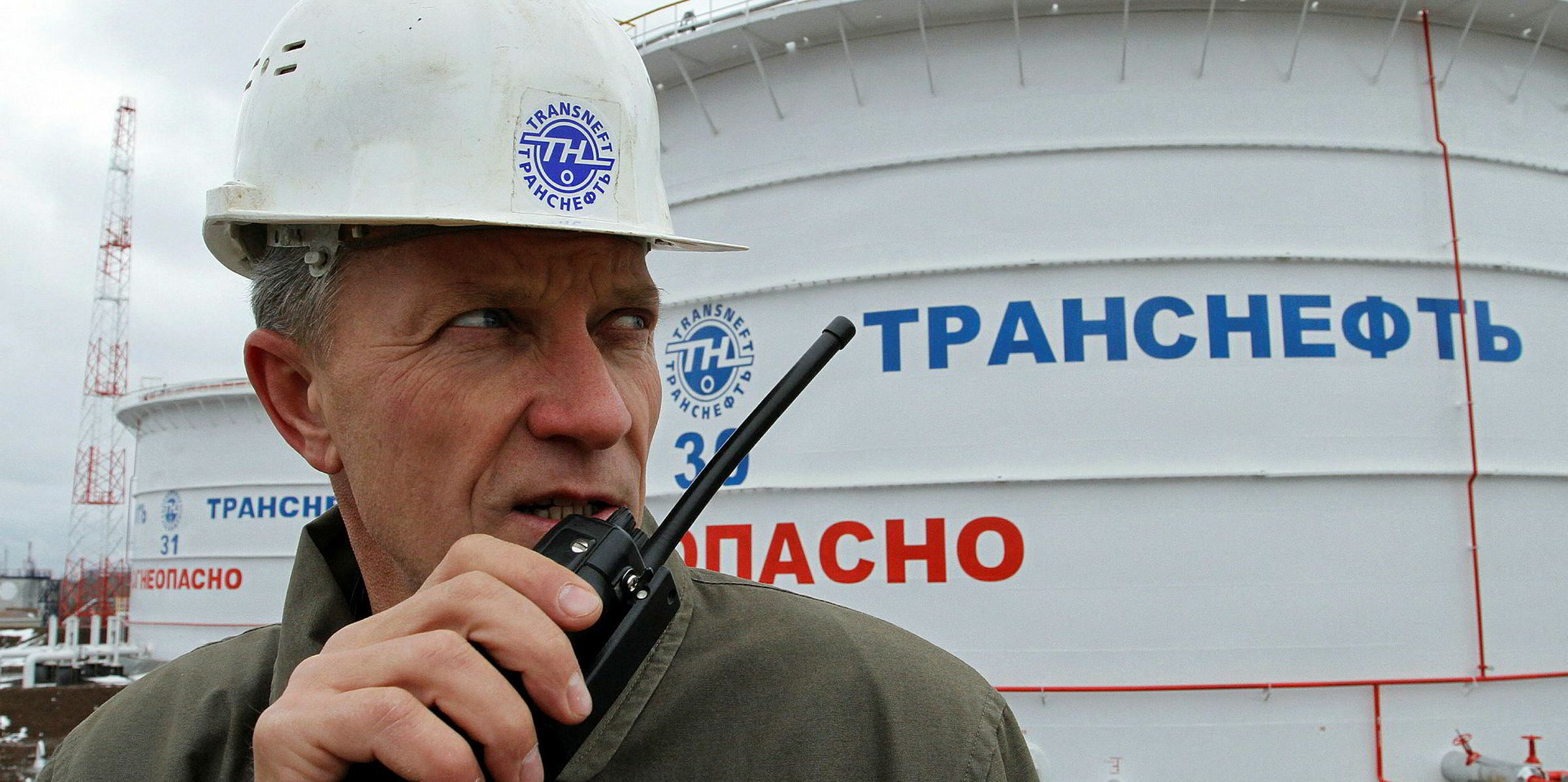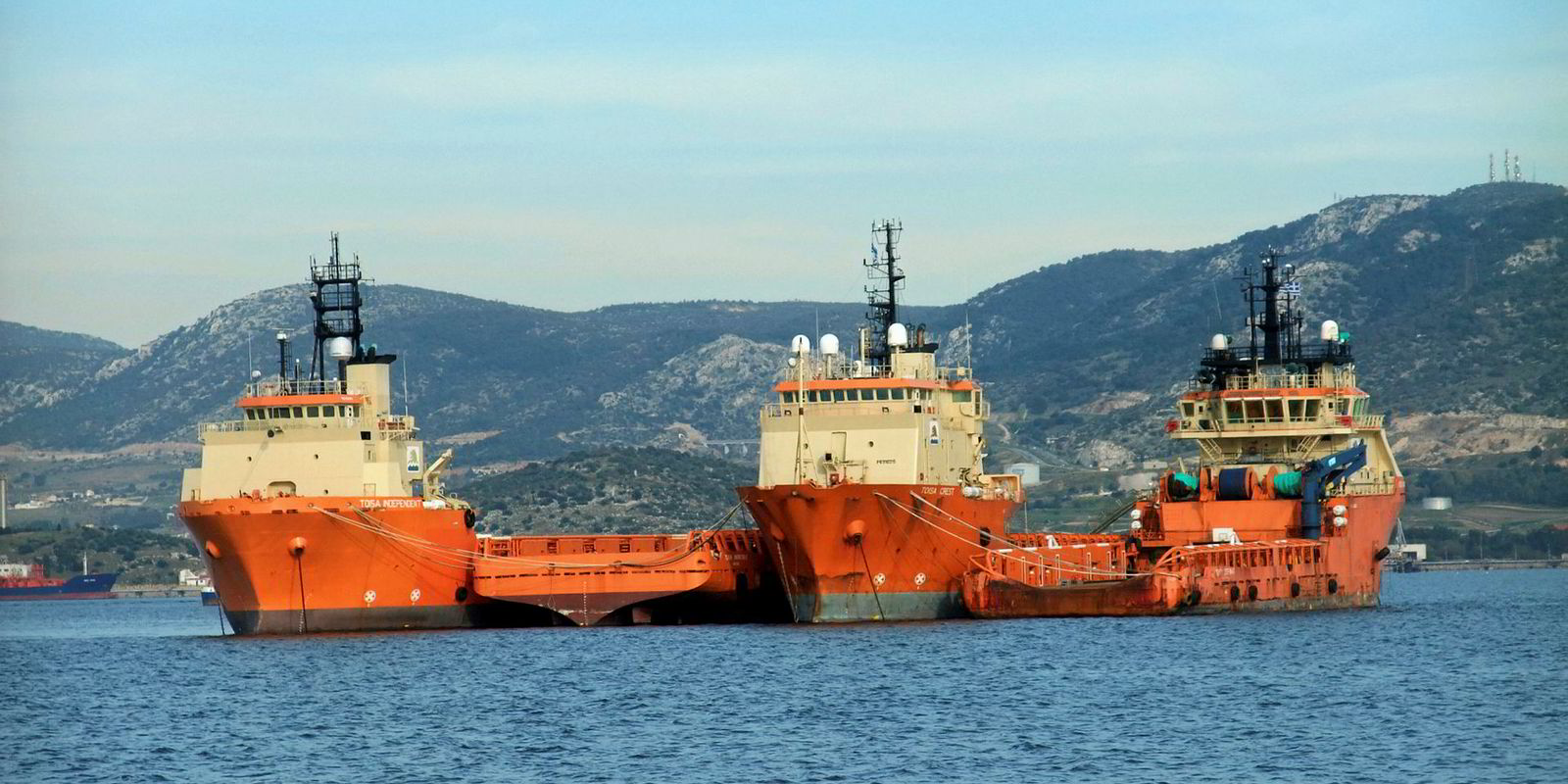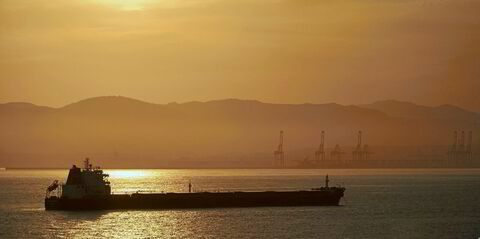Diamantis Diamantides company Delta Tankers has secured the release of an aframax arrested in Russia during a year-long legal ordeal, following a settlement that will cost the International Group of Protection & Indemnity Clubs a whopping $27m.
Things, however, could have been far worse for the Greek shipowner and his insurers.
They originally faced a $63.5m bill over damages caused to a Primorsk port berth by the 111,000-dwt tanker Delta Pioneer (built 2004).
“Considering that the ultimate sum of the compensation went down by about half and our opponent was a large state company, this is a very good result,” said Konstantin Krasnokutskiy, a lawyer for Delta at St Petersburg-based law firm Lex Navicus Concordia.
The Delta Pioneer struck a quay at Primorsk on 20 November 2016, damaging facilities owned by Russian state-owned Transneft, the world’s largest oil pipeline company and owner of Port Primorsk.
The Delta Pioneer was being towed into the harbour when the incident happened.
An investigation by Rostransnadzor, a Russian authority in charge of transport safety, found shared responsibility for the incident between the tug, the tanker’s master and its pilot.
According to the report, there was a “spontaneous, unauthorised recoil of the tow line from the tugboat to the tanker” during the latter’s mooring.
The Delta Pioneer’s pilot and master were also said to have disagreed about the “mode of operation of the main engine” as well as on the moment of anchoring.
Any potential fault on the part of the tug and pilot, however, did not count as a mitigating factor to the benefit of Delta Tankers.
Under Russian law, vessels are considered “heightened hazard sources”. This effectively means that owners or operators are liable for damages caused by their ships, regardless of whether they are actually at fault over an incident or not.
“The injured party just needs to prove a causal link — like ‘the vessel hit the berth and the berth got damaged because of the impact’,” Krasnokutskiy told TradeWinds.
As a result, the commercial court of St Petersburg promptly issued on 23 November 2016 an arrest order for the Delta Pioneer on behalf of Transneft over a claim of $53m.
Three weeks later, the same court issued a second arrest over an additional $10.5m, on behalf of the terminal’s operator Primorsk Trading Port, which Transneft partially owns.
Record claim
The claim ran up to a staggering sum of almost $63.5m (RUB 4bn) making this easily the biggest maritime claim in Russian history.
According to Krasnokutskiy, the commercial court of St Petersburg did not appoint independent experts to assess the damage but relied on a report submitted to Transneft by appraisers at Ernst & Young.
That report was based on abstract formulas that Russian justice often applies when estimating damages — usually book values of properties and past construction prices, multiplied by rather arbitrary co-efficients.
Judges rejected alternative assessments by Delta Tankers’ team of specialists based on more practical gauges used in the West, such as materials, labour and transportation costs deemed necessary for repairs.
Under the alternative assessments, Delta's experts had come up with a much lower bill of between RUB 400m and RUB 1.5bn.
The gargantuan $63.5m bill sent alarm bells ringing from Athens to London, the seat of the ship’s protection and indemnity club, West of England.

Senior officials of the club travelled personally to Moscow to help steer the case, helped by lawyer and negotiator Sergey Saveliev from Saveliev, Batanov and Partners (Moscow), as well as George Lambrou of London-based Thomas Cooper.
By the following spring, the West of England had provided letters of undertaking (LOUs) worth a total $28m to secure the ship’s release.
In April 2017, the St Petersburg court accepted the LOUs and ordered the Delta Pioneer be released.
The decision was posted online late on 24 April, on a federal state online database for judgments.
The next morning, Delta Tankers’ lawyers obtained six certified hard copies of the judgment from the court itself.
But then, strange things started happening. In the afternoon of 25 April, the decision to lift the arrests disappeared from the federal database.
An official hard copy of the decision issued a couple of days later was diametrically opposed to the one that had briefly seen the light of day.
The same judge who had originally accepted the LOUs was now refusing to do so.
EU sanctions
Local media press reports said the new decision was citing European Union sanctions against Russian companies that could prevent Transneft from receiving insurance payments from abroad.
When Delta Tankers’ lawyers asked senior court officials to explain the about-turn, they were told that the first ruling that had lifted the arrest was erroneous and “not what the judge really had in mind”.
The judge was then taken off the case and eventually replaced by her boss.
It was this oddity that earned the Delta Pioneer the distinction of “strangest arrest case of the year” at an event hosted by shiparrested.com — an international network of maritime lawyers. By the time Krasnokutskiy presented the case to his colleagues at the gathering, however, it had already been settled.
The turning point, which paved the way for a settlement, arrived when a Russian appeals court decided that independent experts should reassess the damage.
A new estimate would have been itself subject to review, possibly giving rise to a new round of lengthy disputes.
This seems to have caused Transneft and its subsidiaries to soften their stance. A settlement was eventually reached and approved by the court in late March.
The initial $63.5m claim was cut back to $27m, to be paid in compensation to LLC Transneft-Port Primorsk and to LLC Primorsky Commercial Port.
The settlement is backed by a guarantee issued by Austrian lender Raiffeisen Bank, which is in turn backed by the International Group cartel.
In a statement to TradeWinds, Transneft confirmed the agreement but declined to discuss the matter further, citing client confidentiality.
Delta Tankers had not responded to a request for comment by the time TradeWinds went to press.
The affair provides further evidence that Russia’s port and legal system can spring some nasty surprises.
Russia’s own authorities have targeted some terminals, including Primorsk Port, over anticompetitive practices.
According to international media reports, the law in Russia is often applied selectively and prosecutions can be influenced by outside factors.
“I would just like for the market and the shipowners to be aware of the peculiar risks associated with calling at Russian ports,” Krasnokutskiy concluded.





